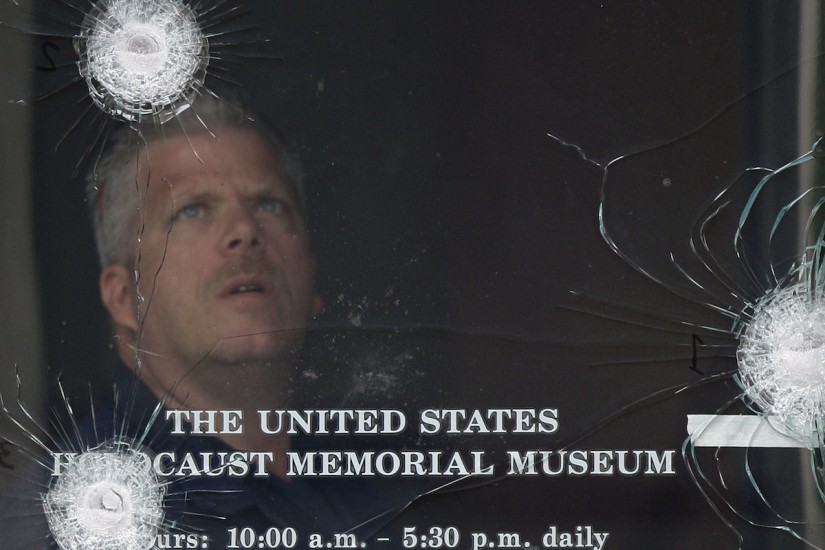How much we admire people we’ve never met. Pointless, when they’re celebrities, but how I stare and stare at the photo I have of him: Reb Kudlanski had kind eyes, an open face. And I can’t stop imagining him there in that cemetery. His shame as he leaned on an ancestor’s headstone to take off his shoes and pants. His bare feet in the cold stiff grass. The night air against the small of his naked back. To humiliate him, the Nazis cut off his beard. Then they shot him.
The Christian villagers made differing choices. Some stood and watched, some turned away, a very few offered refuge to Jews, and far more left to loot the newly empty houses of their neighbors.
In 1944, four years after that massacre—years, I imagine, she spent wishing she’d left with her sister while she still could—Liebke, her husband, and their young son were murdered by the Polish Home Army. Despite a 900-year history of Jewish habitation, today not a single Jew lives in Eishyshok.
Forty years after the massacre, it’s the spring of 1980 and the sun is soon to rise over Central Florida. In a dark driveway, my grandfather Bill sits in his Suburban with the engine off, his hands resting in the downslope of the steering wheel. Shaggy graying hair covers his prominent ears. The windows are cranked open to let in the day’s first birdsong. Can he still remember Liebke’s face? Her full cheeks and dark eyebrows? The cloud of his grandfather’s beard? Does he ever dream of the village he left as a boy?
In the house ahead, one light snaps on, then another. He steps from the car and walks to the door, but before he can knock, my father, tousled and squinting, opens the door and hands me to him, my small body still warm from sleep. In the bathroom, my mother is filling the sink.
And because seventy years ago, on my father’s side, my great-grandmother, grief-stricken, left Vilna, fleeing all she knew; because fifty years ago, on my mother’s side, my great-grandmother kissed her sister goodbye and boarded a ship away from Eishyshok; because my grandfather is a man attuned to wonder, and knows his presence here is miraculous; because I am the first grandchild in a bloodline that by all rights should have ended in a Polish cemetery or in a Polish forest; this is how nearly every day of my first year begins. With my head cradled in the crook of his elbow, with my body resting along the length of his forearm, with the greatest care and attention, my grandfather lowers me into warm water and gives me my morning bath.
*
